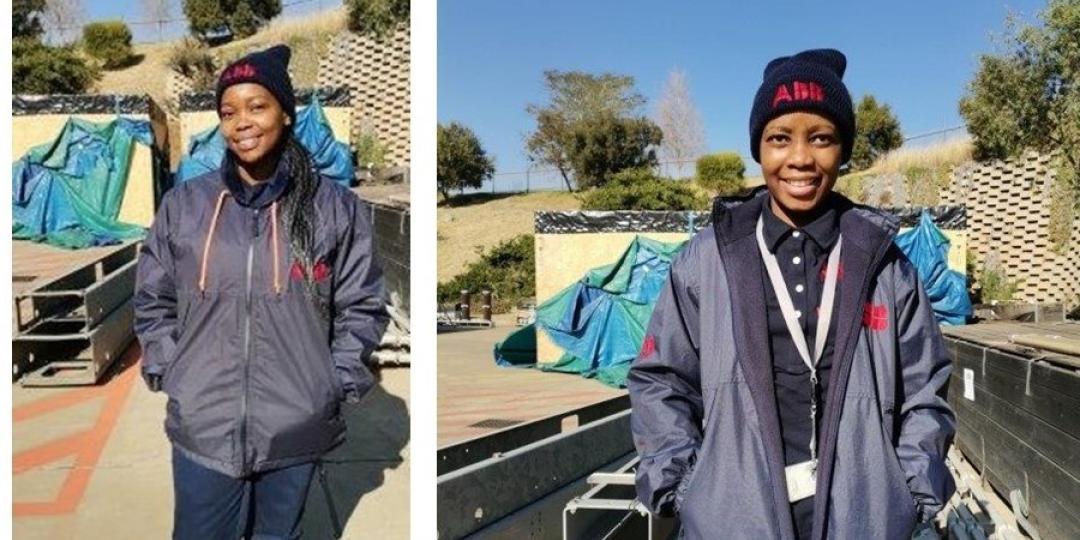Two women engineers at ABB Electrification are testament to the principles underpinning International Women in Engineering Day (INWED). Taking place annually on 23 June, INWED is an international awareness campaign celebrating the work and achievements of women engineers. Launched initially in the UK by the Women's Engineering Society (WES) as a national initiative, INWED has grown year by year, and has since achieved global reach and UNESCO patronage.
A love of mathematics, physics and problem-solving saw Sandile Gladnes Ngomane entering the demanding field of electrical engineering. Zinhle Obedience Ndlazi, an electrical engineering apprentice, sees the equipment and electronics underpinning electrical systems as a puzzle that needs to be solved when any repairs or upgrades are required. “I enjoy the challenge of hunting down what is wrong and finding solutions.”
Currently an AIT student, Sandile is a test engineer in the test department at ABB Electrification. Here she works on the switchgear side (both primary and secondary), confirming if the switchgear works according to the schematic design and meets customer specifications. Zinhle assists with undertaking the functional testing of high-voltage electrical protection systems and also carries out panel wiring.
“My biggest achievement has been to see myself graduate as an electrical engineer and to get to work with different customers from different companies. Being able to handle a project all on my own and resolve any problems that may arise is both a challenge and an enormously satisfying achievement,” comments Sandile.
Zinhle cites her biggest achievement to date as completing her electrical course and graduating in the face of adversity such as limited financial support from her family, which meant she had to work parttime while pursuing her dream. “This taught me to value and stay focused on my goals,” she highlights.
Sandile asserts that women are striving to play a vital role in the engineering field. “Nowadays we see a lot of women in the field doing and committing themselves in the workplace
environment.” However, a concerted effort needs to be made to accommodate women engineers on an equal footing along with their male counterparts. “Women must also be given the opportunity to lead and demonstrate their capabilities. I strongly believe that women are
particularly suited for STEM careers, but just lack the opportunity and support to do so.”
Zinhle stresses that the role of women in engineering is no different than that of their male counterparts, as both contribute to an economic sector that underpins critical infrastructure
development such as water and wastewater reticulation and transportation networks. “We all have the same capabilities, and together we bring change to the country.”
Sandile elaborates: “Being a young woman in engineering can be challenging at times, because I am in the minority and also represent a challenge to the tradition. Another challenge is
pursuing a career in a male-dominated field, especially if you lack confidence due to a sense of being excluded and being made to feel that you do not fit in or belong.”
Zinhle concurs, stressing that awareness of the importance of gender equality in engineering can only be improved if the issue is afforded a platform for discussion and evaluation. “Each individual operating within the engineering space deserves equal recognition, irrespective of their gender.”













